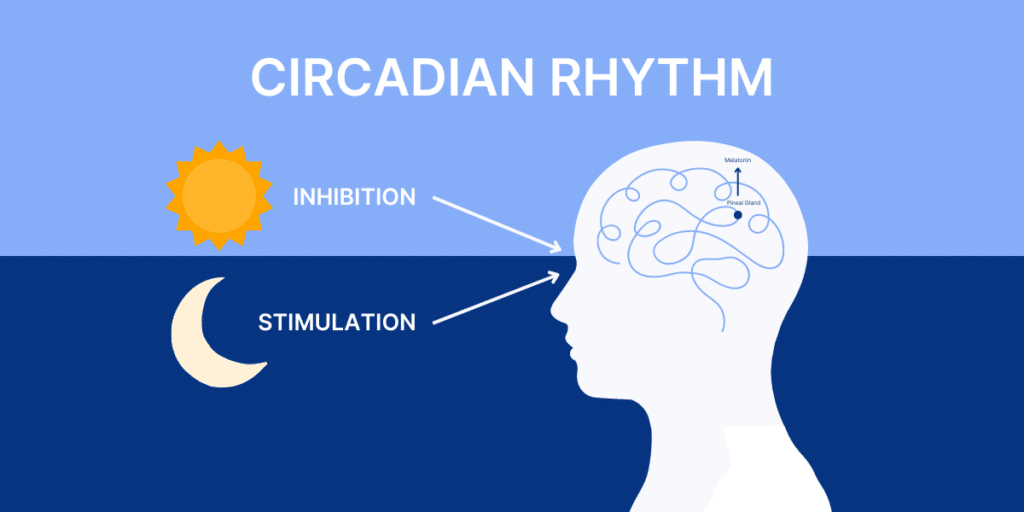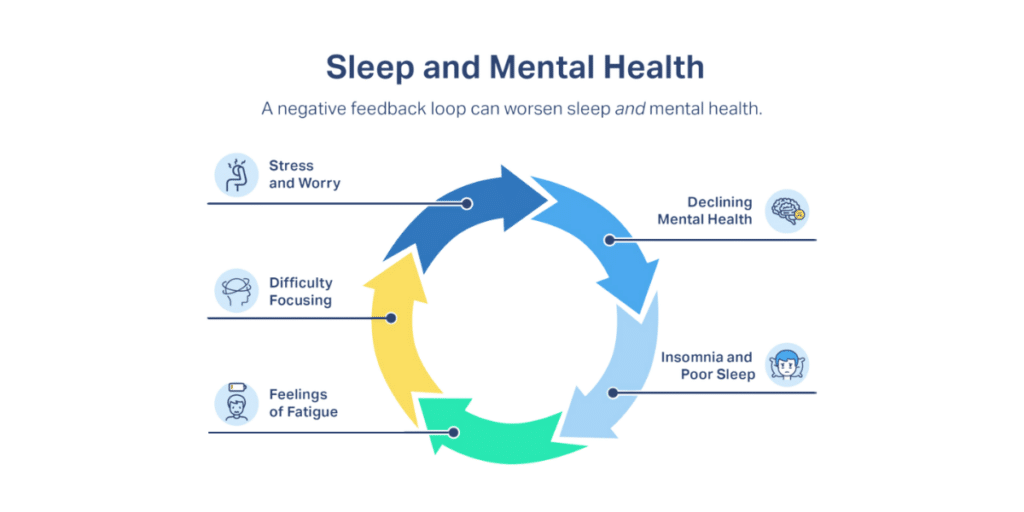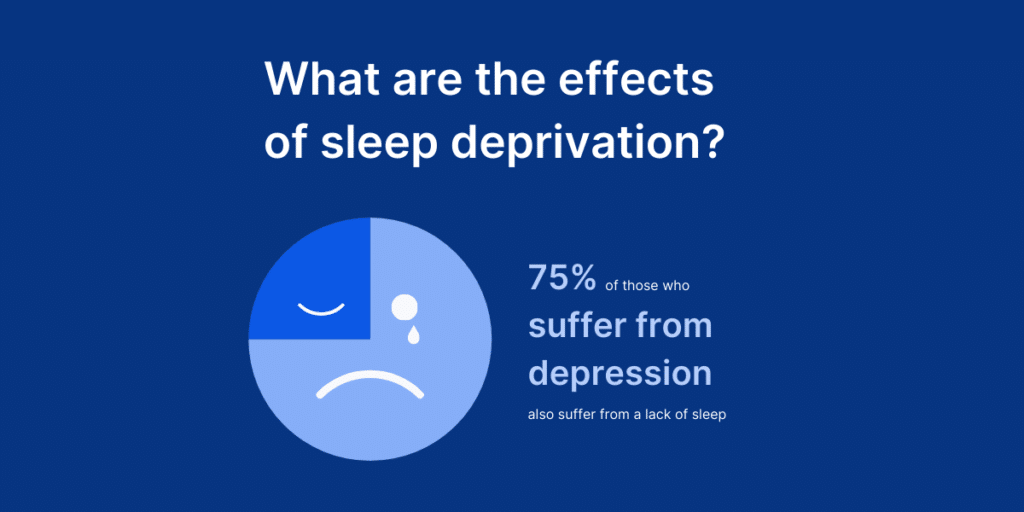Shift work encompasses a variety of work schedules that deviate from the traditional 9-to-5 framework, often including night shifts, rotating shifts, and irregular schedules. It has become increasingly prevalent in modern society, with millions of individuals worldwide engaged in occupations that require non-standard work hours. From healthcare workers and emergency responders to factory employees and customer service representatives, the scope of shift work spans across diverse industries and professions.
In industrialized societies, approximately 15–20% of workers are employed as shift workers. The report by the National Health Interview Survey and the Occupational Health Supplement estimated that 27% of all workers in the United States (US) work an alternative shift.
While shift work is necessary for many industries to operate effectively, it presents significant challenges for both employees and employers. Shift workers commonly experience disruptions to their circadian rhythms and sleep-wake cycles, leading to sleep disturbances and fatigue. These challenges can have detrimental effects on physical health, mental well-being, and job performance. However, shift work also offers certain benefits, such as flexibility, higher wages, and opportunities for career advancement, which may attract some individuals to these roles despite the associated drawbacks.
Effects of Irregular Schedules
The relationship between sleep disturbance, depression, and irregular schedules is complex and multifaceted. Shift work disrupts individuals’ natural circadian rhythms, often leading to difficulties falling asleep, staying asleep, and achieving restorative rest. These sleep disturbances, in turn, can contribute to the development or exacerbation of depression and other mental health disorders. Furthermore, irregular schedules impose significant strain on individuals’ daily routines, making it challenging to maintain a healthy work-life balance and engage in self-care practices.
The implications of sleep disturbance, depression, and irregular schedules extend far beyond individual well-being, impacting workplace productivity, public safety, and healthcare systems. Individuals who experience chronic sleep deprivation and depression are more likely to experience impaired cognitive function, reduced job performance, and increased absenteeism.
Moreover, the cumulative effects of shift work-related health issues can place a considerable burden on healthcare resources and drive up healthcare costs. Therefore, gaining insight into the link between these factors is essential for implementing effective interventions and policies to support the health and resilience of shift workers and society as a whole.
The Impact of Shift Work on Sleep Patterns
Shift work exerts a profound influence on individuals’ sleep patterns, disrupting their natural circadian rhythms and sleep-wake cycles. This disruption stems from various factors inherent in non-standard work schedules, which can lead to sleep disturbances with far-reaching consequences for physical and mental health.

Disruption of Circadian Rhythms and Sleep-Wake Cycles
The human body operates on a circadian rhythm, a roughly 24-hour cycle that regulates essential bodily functions, including sleep-wake cycles, hormone secretion, and body temperature. Exposure to light, particularly natural light, plays a crucial role in synchronizing these rhythms with the external environment. However, shift work often involves working during the night or irregular hours, disrupting the body’s natural rhythm and causing confusion in the sleep-wake cycle.
Night shifts, in particular, force individuals to be awake and active during the hours when their bodies are biologically predisposed to sleep. This misalignment can lead to difficulties falling asleep at the desired time and staying asleep throughout the day, resulting in poor sleep quality and decreased overall sleep duration. Additionally, rotating shifts further exacerbate this disruption by continually shifting the timing of work and sleep, preventing the body from adapting to a consistent schedule.
Factors Contributing to Sleep Disturbance Among Shift Workers
Several factors contribute to sleep disturbances among shift workers, exacerbating the challenges posed by irregular work schedules.
- Irregular Schedules: characterized by varying start times, unpredictable shift lengths, and inconsistent work hours, disrupt individuals’ ability to establish and maintain a regular sleep routine. This inconsistency makes it challenging for the body to adjust to a consistent sleep-wake cycle, leading to fragmented and insufficient sleep.
- Light Exposure: plays a significant role in regulating the body’s internal clock and sleep-wake cycle. Shift workers, particularly those working night shifts, are often exposed to artificial light during their working hours, which can suppress the production of melatonin, a hormone that promotes sleep.
- Environmental Factors: such as noise, temperature fluctuations, and disruptions in social and familial routines can further disrupt sleep patterns and exacerbate sleep disturbances among shift workers.
Consequences of Poor Sleep Quality for Physical Health
The consequences of poor sleep quality extend beyond mere feelings of fatigue and drowsiness, impacting both physical and mental health. Chronic sleep disturbances are associated with an increased risk of developing a range of health conditions, including cardiovascular disease, obesity, diabetes, and compromised immune function.
For shift workers, the cumulative effects of sleep disturbances can significantly impair job performance, increase the risk of accidents and errors, and compromise workplace safety. Additionally, the mental and emotional toll of poor sleep quality can lead to decreased job satisfaction, higher levels of stress, and burnout among employees.
In essence, the impact of shift work on sleep patterns is multifaceted, encompassing disruptions to circadian rhythms, environmental factors, and the consequences of poor sleep quality for physical and mental health. Understanding these challenges is essential for developing strategies to mitigate the negative effects of shift work on sleep and promote the well-being of shift workers.

The Relationship Between Sleep Disturbance and Mental Illness
Understanding the complex interplay between sleep disturbance and mental illness is crucial, especially in the context of irregular work schedules prevalent in shift work environments. This section provides an overview of mental illness among shift workers, explores the bidirectional relationship between sleep disturbance and mental health disorders, and elucidates the underlying mechanisms linking sleep disruption to mental illness.
Mental illness encompasses a broad spectrum of conditions affecting mood, cognition, and behavior, including depression, anxiety disorders, bipolar disorder, and schizophrenia. Shift work has been associated with a higher prevalence of mental health disorders, with studies indicating elevated rates of depression, anxiety, and psychological distress among shift workers compared to those with regular daytime schedules. The unique stressors and challenges inherent to shift work, such as disrupted sleep patterns and social isolation, contribute to the increased vulnerability of shift workers to mental health issues.
The relationship between sleep disturbance and mental illness is bidirectional, with each factor influencing and exacerbating the other. Sleep disturbances, such as insomnia, sleep deprivation, and irregular sleep-wake cycles, can precipitate or exacerbate symptoms of mental illness, including mood disturbances, cognitive impairment, and emotional dysregulation. Conversely, individuals with mental health disorders are more likely to experience sleep disturbances, such as difficulty falling asleep, frequent awakenings, and non-restorative sleep.
Several mechanisms underlie the link between sleep disruption and mental illness:
- Alterations in neurotransmitter systems
- Hormonal changes
- Dysregulation of the stress response
- Disruptions to sleep architecture
- Reduced REM sleep
- Reduced slow-wave sleep
- Impaired neuroplasticity
- Impaired neurotransmitter function
- Alterations in cortisol levels
- Decreases melatonin secretion
- Increases inflammatory markers
Psychological Effects of Irregular Schedules
Irregular work schedules imposed by shift work can have profound psychological effects on individuals, exacerbating the risk of depression, anxiety, and cognitive impairment. The disruption to daily routines and social rhythms brought about by irregular schedules can significantly impact mental well-being, contributing to a range of psychological challenges among shift workers.
Depression Associated with Irregular Work Schedules
Irregular work schedules disrupt individuals’ daily routines and social rhythms, increasing the risk of developing depression and other mood disorders. The lack of consistency in work hours and sleep patterns can lead to feelings of isolation, inadequacy, and emotional distress, contributing to the onset or exacerbation of depressive symptoms among shift workers.
Stress and Anxiety Associated with Irregular Work Schedules
The unpredictability and instability inherent in irregular work schedules can induce chronic stress and anxiety among shift workers. Constantly changing shift patterns, long working hours, and limited control over work schedules can heighten feelings of uncertainty, overwhelm, and psychological strain, exacerbating stress and anxiety symptoms.
Other Impacts Associated with Irregular Work Schedules
Irregular work schedules can impair cognitive function and decision-making abilities, compromising job performance and safety. Sleep disturbances and fatigue resulting from irregular schedules can impair attention, memory, and executive function, leading to decreased productivity, increased errors, and accidents in the workplace.
Irregular work schedules can strain social relationships and familial obligations, leading to conflicts and disruptions in family dynamics. Shift work often requires individuals to work during evenings, weekends, and holidays, limiting opportunities for socialization and participation in family activities. This social isolation and disconnection from support networks can further exacerbate feelings of loneliness, depression, and stress among shift workers.

Case Studies and Research Findings
The exploration of case studies and research findings provides valuable insights into the intricate relationship between shift work, sleep disturbance, and depression. By examining real-world examples and empirical evidence, we can better understand the challenges faced by shift workers and identify effective strategies for addressing these issues.
Studies have shed light on the complex interplay between these factors. For instance, the study titled “Sleep Disturbances and Depressive Symptoms of Shift Workers: Effects of Shift Schedules” highlights the prevalence of sleep disturbances and depressive symptoms among shift workers, emphasizing the detrimental impact of irregular shift schedules on mental health. The findings underscore the need for targeted interventions to address sleep-related issues and promote mental well-being among shift workers.
Coping Strategies and Interventions
As the understanding of the link between sleep disturbance, depression, and irregular schedules deepens, it becomes imperative to develop effective coping strategies and interventions to support the well-being of shift workers. Explore various approaches at the individual, workplace, and policy levels aimed at managing sleep disturbance, promoting mental well-being, and addressing the challenges inherent in shift work environments.
Individual Strategies
At the individual level, adopting healthy sleep hygiene practices and lifestyle habits can help mitigate the impact of sleep disturbance and promote mental well-being among shift workers.
Strategies may include:
- Establishing a consistent sleep schedule
- Creating a conducive sleep environment
- Limiting caffeine and alcohol intake
- Incorporating relaxation techniques
- Engaging in regular physical activity
- Maintaining a balanced diet
- Prioritizing self-care activities
Workplace Interventions
Workplace interventions play a crucial role in supporting the health and well-being of shift workers. Employers can implement various measures to mitigate the adverse effects of irregular schedules and promote a supportive work environment.
- Flexible scheduling options, such as allowing employees to have input into their shift preferences or offering compressed workweeks.
- Ergonomic adjustments to workstations and lighting can help minimize physical strain and optimize comfort for employees working non-traditional hours.
- Providing access to resources such as employee assistance programs (EAPs), mental health support services, and sleep education workshops can empower shift workers to proactively manage their health and seek assistance when needed.
Policy Recommendations
At the policy level, there is a need for comprehensive measures to address the unique challenges faced by shift workers and promote employee health and productivity.
Policy recommendations may include:
- Establishing guidelines for maximum shift duration and minimum rest periods between shifts to prevent excessive fatigue and burnout.
- Implementing regulations to ensure adequate staffing levels and workload distribution can help mitigate the strain on individual workers and reduce the risk of errors and accidents.
- Offering incentives such as shift differentials, paid time off for rest and recovery, and access to affordable healthcare coverage can incentivize employers to prioritize the well-being of shift workers and invest in supportive policies and programs.

Prioritizing Shift Worker Well-being
In the exploration of the intricate relationship between sleep disturbance, depression, and irregular schedules, particularly within the framework of shift work, it becomes evident that these factors are deeply interconnected and profoundly impact the well-being of individuals and organizations alike.
As we gain a deeper understanding of the impact of sleep disturbance, depression, and irregular schedules on shift workers, it is imperative to mobilize efforts to increase awareness, conduct further research, and provide support for those affected.
Ultimately, the health and well-being of shift workers should be paramount in the design of work schedules and organizational policies. By prioritizing employee health and well-being, organizations can create a culture of care and support that enhances productivity, morale, and retention.
About the Author
Claire Pieper is the Marketing Communications Coordinator for Indeavor. In her role, she specializes in
crafting strategic and engaging content, ensuring that customers are well-informed. Claire is dedicated
to enhancing the customer experience and optimizing the user journey through Indeavor’s solutions. To
learn more or get in touch, connect with Claire on LinkedIn.







